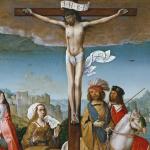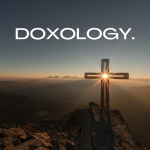
if there is anything revolutionary within christianity, it is everything that lies outside of it. meaning, that christianity at its best must be receptive to the ‘trauma of the secular’, rather than resist it (as it has historically).
the anarchic kernel within christianity resides not in the creeds, not even in the bible itself, but rather in freud and lacan (or psychoanalysis). who, as people, resisted christianity (aka, conversion), however, in the present future their ghosts are assisting in the resurrection of a new kind of revolutionary christianity (via universality).
christianity can no longer survive in a pluralistic world as a dogmatic exclusive community based on over-spiritualized ethics. but rather, it must return to its future. a future where christ is interpreted not merely as a historical person, not as a mediator, but rather as a central aspect to every human. this is where the radicality emerges and sustains itself. before we demonstrate this, i think it is crucial we listen in from someone who emerges out of a psychoanalytic perspective who deems himself an atheist theologian, cultural theorist slavoj zizek.
“The usual reproach to psychoanalytic criticism is that it reduces everything to family complexes: whatever the story, it is “really about” Oedipus, incest, etc. Instead of trying to prove that this is not true, one should accept the challenge. The films which are furthest from family dramas are catastrophe films, which cannot but fascinate the viewer with a spectacular depiction of a terrifying event of immense proportions.
This brings us to the first psychoanalytic rule of how to read catastrophe movies: we should avoid the lure of the “big event” and re-focus on the “small event” (familial relations), reading the spectacular catastrophe as an indication of the family trouble. Take Steven Spielberg: the secret motif than runs through all his key films – ET, Empire of the Sun, Jurassic Park, Schindler’s List – is the recovery of the father, of his authority.
One should remember that the family to whose small boy ET appears was deserted by the father (as we learn in the very beginning), so that ET is ultimately a kind of “vanishing mediator” who provides a new father (the good scientist who, in the film’s last shot, is already seen embracing the mother) – when the new father is here, ET can leave and “go home.”
take for example a famous narrative/parable in the new testament book of luke, most know it as the the prodigal (or lost) son. a story about the youngest son who runs away from the family. there is not one implicitly correct way to interpret this story, the inherent nature of parables is that it invited the listener to participate in any way. this in and of itself was not merely some lazy form of participatory hearing, but rather was meant to lead the listener to action (inner or outer). to listen to the parable was to act on it.
in this narrative what we have is a fractured relationships between the father and his two son’s. the fact that they all remain unnamed is a simply rhetorical device so the reader would assume one of the roles and begin the ‘act’ of listening. it was not that the father represented god or the son represented israel and the frustrated brother stood for the pharisees, although their is room for this interpretation i want to offer another. a psychoanalytic one, what we can then do is imagine this parable as a dream and respond accordingly.
when we meet the youngest son, who is culturally submissive to a familiar order requests his father’s income (as his inheritance), he essentially is telling his father to drop dead (for one to receive their inheritance, the father had to die). but even more revolutionary the son is experiencing a crisis of self-identity. the father represents the Law, that which structures, defines and prohibits the subject (in this case the son). the son breaks away from the Law (in a very Oedipal way, by wishing the father dead). by disavowing the community he belongs to, one being the family unit, the second being the wider community, the son becomes identity-less (‘dead to the world‘) to then go off and begin ‘finding himself’. the Aristotelian definition of repentance does not align itself with the traditional idea of metanoia (think again;re-think) but rather is a word that illicits the notion of learning (not from sin) as a way of life.
there is a jewish idea called teshuva which also loosely means repentance, or a return. but in this story it is a return not to a former self, but rather to a future self (someone who is awaiting you beyond your current experience). so essentially, your current life experiences are somewhat of a ‘vanishing mediator’ from you ‘now’ and you ‘in the future’. when the son returns, he does not return as a son, but as a king (this is the metaphor that is employed when the father says they should use the finest robes and so on. the son is no longer the boy, but is now a man. in a very primal sense, this is about a rite of initiation, much like some of the ancient tribal customs of transforming man into boys. (this is why the father lets the son go).
identity is central to who we are, who we are defines what we do and why we do it. this is why this story is so central not as a story but as a narrative that demonstrates the power and divinity that lies as the backdrop of existential crises. it is only when one breaks away from all that defines them that they can return as a new authority (from a boy to a king) on themselves.















